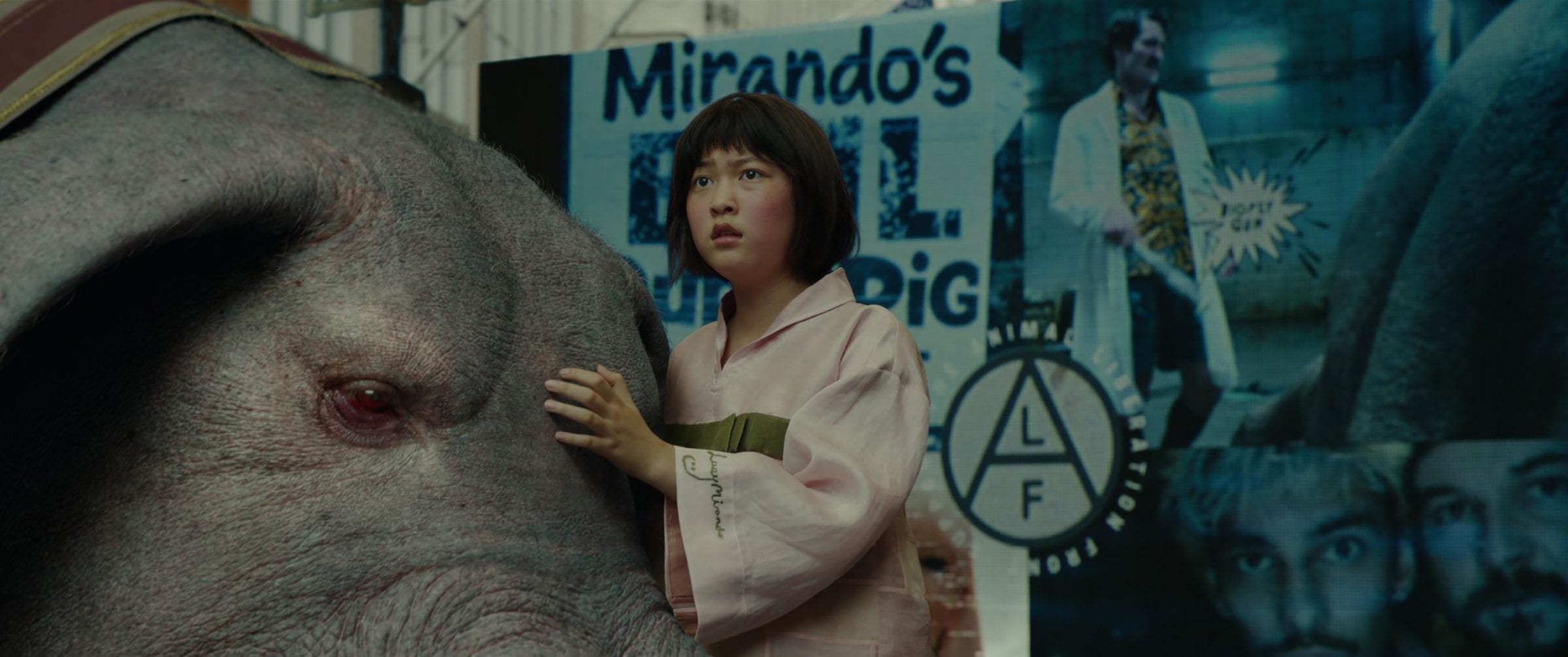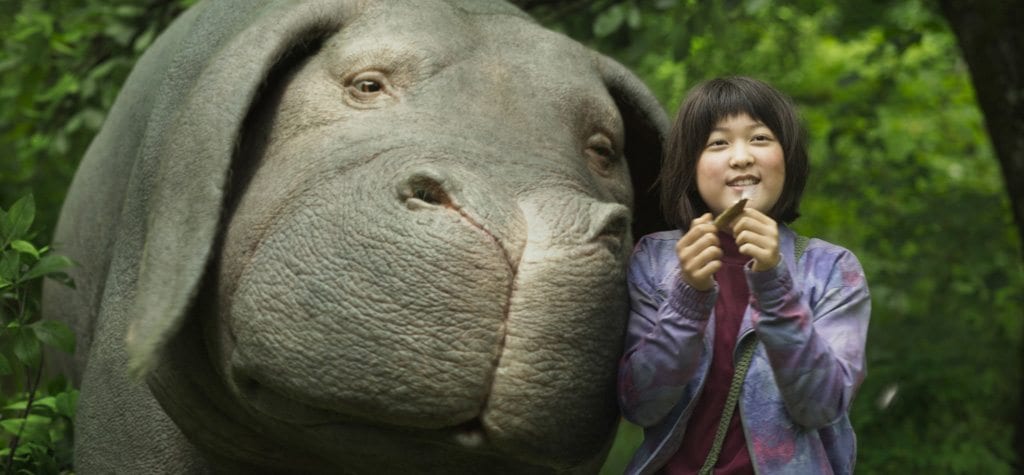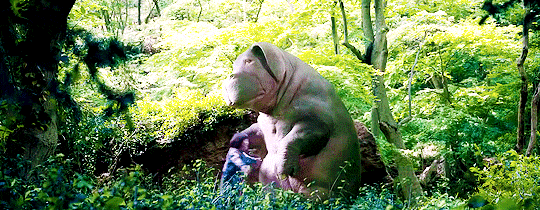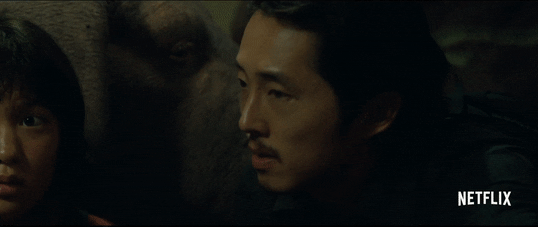
‘Okja’ goes for gold at the scene-chewing Olympics
Experts indicate the coming food revolution won’t be centered around livestock, or even produce – mainly it’ll involve insects. But you wouldn’t know that from Bong Joon-ho’s bizarro sustainability opus Okja, centered as it is around a synergistic corporate contest to unveil a fleet of “super pigs” designed specifically to end world hunger.
Okja aims boldly to decry Western greed by making out the consumers and producers of that culture to be even more gluttonous than the chubby ungulates on the screen. While the film is too muddled and messy to make much in the way of a cohesive – let alone effective – argument, there’s no denying it’s at least a far more entertaining takedown of rapacious business practices than anything you’re going to read in Jacobin.

Committed fans of Joon-ho Bong won’t be surprised by this approach. His first Western success was with the kaiju-environmental disaster flick The Host, followed by climate change class drama Snowpiercer. Bong isn’t exactly a subtle director; his skill lies in taking large social concepts and twisting them to an illogical extreme.
But even by those standards, Okja is delirious and chaotic, and much of that is because of the Olympics of scenery chewing provoked in his cast in the form of Jake Gyllenhaal (Donnie Darko) & Tilda Swinton (Doctor Strange).
Swinton is Lucy, the synergistic black hole sucking all of the other characters into her vortex as the CEO of the fictitious Mirando corporation. A ten-year hype cycle ensues for the mutant pig her company created, specimens raised by a couple dozen farmers across the world, one of which will be proclaimed the World’s Best Super Pig and presented to the public before, well, you know.

Swinton’s performance as the maladjusted, duplicitous Lucy would be distracting regardless, but it is moreso if you followed the behind-the-scenes controversy resulting from email correspondence between her and Margaret Cho, wherein Swinton essentially begged Cho for help: Swinton was accused of whitewashing her Dr. Strange performance.
Swinton ended that correspondence by acting as though Okja would, more or less, make up for whatever sins she committed with Dr. Strange, an approach somewhat akin to her Okja character’s M.O.
Saccharine as they may be, the sections of the film juxtaposing the Mirando family with the rural family raising the eponymous World’s Best Super Pig form the bulk of the movie’s high points, with Ahn Seo-Hyun’s performance as protagonist Mija standing out as particularly effective.

The animators do an incredible job bringing Okja to life in her interactions with Mija, to the point that the animal feels far more real than most of her human co-stars – making it all the more disappointing that the back half of the film is mostly focused on brutalizing the hyper-intelligent Okja, including a rape scene that serves as the nadir of Bong’s career.
This isn’t the only area where the film sabotages itself by swerving wildly between styles and tones. Bong crams Okja full of enough ideas to cause cinematic whiplash. One corner of the film is basically Death to Smoochy for the meat industry, with Jake Gyllenhaal’s Fred-Schneider-on-a-coke-bender animal show host Dr. Johnny serving as its Robin Williams, and an underutilized Giancarlo Esposito (Breaking Bad) as its Danny Devito.
Another jagged edge of the film follows Jay, played by a Paul Dano (Ruby Sparks) appearing to cosplay Gerard Way. He leads an unusually well-funded and organized animal rights activist group called the Animal Liberation Front, who indulge in deceptive and amoral behavior in order to “save” the super pigs.

And still another thread: zany slapstick featuring Okja’s ability to shoot poop pellets at bystanders. The only constant is Mija, a beacon of ethical behavior, completely, and literally, clean of bullshit.
While some scenes entertain, the low points, including its half-hearted climax and predictable plot twist, undermine the effectiveness of Bong’s core concept, particularly if you keep track of the intrusive product placement. (I suggest making a drinking game out of the shooting script’s obsession with YouTube).
As much as Okja condemns gluttony, that doesn’t stop Bong from taking a gluttonous approach to style, stuffing viewers’ faces with so many styles and characters you can never really become attached to any of them. In the end, Bong may have created something infected by precisely the straw man Okja ostensibly set out to defeat: a film as bloated as global corporatism and, ultimately, just as unfulfilling.



